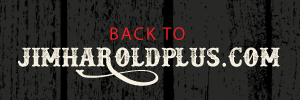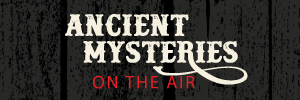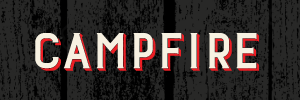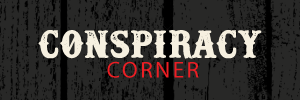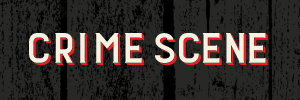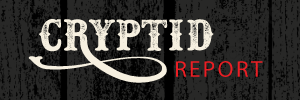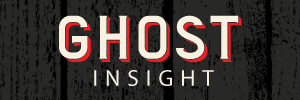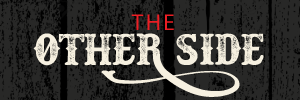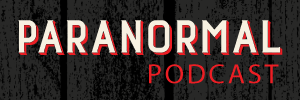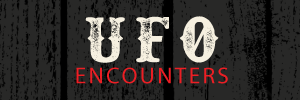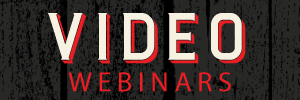Feb 27, 2022
Natalie Zett joins us to share how writing about her family history uncovered secrets that have resonated throughout the generations.
You can find her book at Amazon: Flower in the River: A Family Tale, Finally Told
Thanks Natalie!
JIM'S FREE NEWSLETTER
Never miss anything going on at the Spooky Studio, sign up for Jim's FREE newsletter HERE!
TRANSCRIPT
Please note we do not guarantee 100% transcript accuracy. The below reflects a best effort. Thank you for your understanding.
Jim Harold 0:00
Fleeting glimpses of things seen through a veil darkly. Do we
understand the meaning of these visions of life, why we are here
and how little of our existence we truly understand? Tonight, we
will talk of these things on the Other Side. Welcome to the Other
Side, I am Jim Harold, and so glad to be with you once again. And
something that I find you might not look at it as mystical at
first, but genealogy and looking back in the history of your
family, and then it almost has a mystical quality. And in the sense
of our guest today, her story does have a mystical quality because
things that happened generations ago in our family continue to
impact her and her family years later. And if that's not kind of
metaphysical, I don't know what is. Our guest today is Natalie
Zett. She is the author of the very recent book Flower in the
River: a family tale finally told, and Natalie has a very
interesting background, really a renaissance woman. She's been a
writer and is a writer, she's been an actor, photographer, and
musician. And actually, she grew up in the same area that I did in
Cleveland, which is kind of one of those cool synchronicities and
we're so glad to have her on the show. She majored in Business
Administration, but then she graduated from Luther Seminary in
Minnesota where she received an MA in systematic theology or
system. Did I get that right? Is it systematic?
Natalie Zett 1:34
You got it right. Don't ask me what it is, though, Jim.
Jim Harold 1:37
Well, that's like I have a master's in applied communication theory
and methodology, whatever that means. We don't know what but
anyway, my mind's a truly a useless degree. If I were going on to
get a PhD, it would have been great, but I didn't do that. But
anyway, so glad to have you on the show and talk about this. Now, I
know, obviously, you've been listening to the shows for years,
you're a member of the Plus Club. Thank you for that. But what made
you decide to get into the history of your family? What, what made
you say, Natalie, this is a story that needs to be told and I'm the
one that needs to tell it?
Natalie Zett 2:15
Um. It was one of those strange things, Jim, where I was somewhat
estranged from my family. And I relocated, I thought it was really
smart to come up to Minnesota because I thought I don't have any
family here, within a 100 mile radius, or 20o mile radius, or so I
thought. And I am probably could be voted the least likely to be a
family historian. But things happened and I was up here for about
1012 years, I got my master's degree from Cliff seminary with a
systematic theology, and I was working as an IT person, because
that's what you do with a theology degree. And I did other creative
things. And as moving along, then my dad died in 1996, and all of a
sudden, every decision I had made, and everything that I had done
to that point, came to a grinding halt. And I had a lot of self
recrimination. Oh, God, should I have done it differently? What did
I do? And I was in grief, but also just re examining my whole life.
And I think that's appropriate, sometimes it junctures like that.
And my heart was completely splayed open. I was just, and then
maybe a few months later, my mother's sister who I thought was
dead, living in Chicago, she was in her 80s. And a retired
reporter. She'd been out of the industry for probably 50, 60 years,
who knows how long, but she knew I was a published writer, and had
a very successful writing career up until that point. And she sent
me this 38 page family history. And she said, you're the only one
who could do something with this. So besides the fact I thought she
was dead. I was reading through this. And my mother's mother. This
is about my mother's mother's side of the family died when my mom
was three. They were living in Johnstown, and the rest of her
family immigrated to Chicago, and they stayed there. They lost all
contact. So my mother was raised by her father in Johnstown, lost
most contact with her relatives in Chicago. And therefore, we knew
nothing about this side of the family. And I thought, even though I
was curious, little kid, is that there's nothing to learn here. So
I started slipping through this document. And because my Aunt Pearl
was was a reporter, and she was so thorough, everything was
organized in these little columns. And she did everything by
typewriter, and I thought how to do that. And I was reading through
these names, and I thought, These are my family. And so I saw my
grandmother's name on a cipher, all these siblings, and then I was
flipping through the pages and I saw something that said, Martha's,
or my grandmother on his sister, Martha Pfeiffer was killed at age
19. In a ferry boat accident, I thought a ferry boat accident in
Chicago. I thought what an I was reading further where there were
800, some people killed in downtown Chicago in 1915. And I thought,
No way, I would have heard of that I was always drawn to Chicago,
even as a child. I had been to Chicago a few times on the way from
Ohio to Minnesota, you saw through Chicago, I always felt a
connection with Chicago. So that's where it started, I thought, how
could we not have this and by then, I had this information. And by
then I was writing regularly for one of the local papers. And I
thought I'll write about this thing, whatever this thing is, and I
couldn't find any information. Again, this is in the 90s. And the
internet was not quite what it became,
Right. In its nascent, early days.
Nacent early days is a beautiful way to describe that and I went to the library. And I thought, What is wrong with this? And I thought, Why have I not heard of this woman? Why have I not heard of this disaster. So that's how it started. And I don't want to just keep rambling on if there's one piece you want to direct this, but that's how it all began with me as a reporter. It's how it began.
Jim Harold 6:04
And again, you have such a great varied background writer reporter
also now you're an IT specialist. Now, let me ask you this, do you
feel that, you know, we certainly get our health characteristics,
our appearance, and so forth? Through through the lineage and so
forth? We inherit different physical traits. Do you also think we
inherit different spiritual traits? And perhaps, worries and
sadnesses of past generation somehow?
Natalie Zett 6:42
I think you're right. I, it's a difficult thing to prove, Jim. But
in terms of my life, one of my cousins after what I said after like
500 coincidences, Natalie, maybe it's not a coincidence anymore,
there are just so many things that were and for me, I want to
backtrack a little bit when I was in Cleveland, my family was all
four of my grandparents were from the old country, Eastern Europe,
we don't know what countries they were from, but they were from
there. And and my mother insisted we were German. And we were going
to be raised Lutheran, forgetting that my dad had a whole other
lineage but that's didn't count. So one day we were in shaker
square. I know, you know what that looks like? Yeah. And it was
maybe four or five years old. And there was a book, a Hebrew book,
and it was out on the display. And I was looking at it. And I said,
Well, I know what that is. And my mom said, you do not know what
that is. And I said, Well, what is it? I've seen this before?
Should you have not seen this before? She said, this is Jewish
writing. I said, I've seen this before. And I think we're Jewish,
and she's so a grandfather was a member of the German American
bond, that was her father, the pro Nazi group in the 1930s. So
yeah, no. So she tried to silence that. But in fact, years later,
after the DNA test, yes, you're Jewish, on my father's side, least
partially. So it was one of those things where Absolutely, for
whatever reason, even though I was the outlier, the black sheep of
the family, whatever, I was able to resonate with certain things.
And that happened all the way through even even my move up to
Minnesota back to when I was digging around that little genealogy,
your family history that my aunt had written. I saw something else
besides the Eastland. Besides my Aunt Martha, I saw that my great
great grandmother and her children had immigrated to western
Wisconsin, which is about an hour and a half from where I was
living.
Jim Harold 8:28
(overlapping speech) go ahead, go ahead.
Natalie Zett 8:32
No, you go ahead, Jim,
Jim Harold 8:33
I was gonna ask you about this Eastland disaster, because I should
know as you know, Cleveland has a lot of old history, like with a
torso killer, and those. So the local cases I'm fascinated by and
as I understand it, the Eastland was an excursion boat, and it was
known as the speed Queen of the Great Lakes. Right.
Natalie Zett 8:53
You did your homework, absolutely.
Jim Harold 8:55
Do my best. I do my best. Thank you, Google. Thank you, Google. But
my point being tell if you can tell us a little bit about that and
your family's role in that because I gotta tell you, that's very
powerful when something like that happens.
Natalie Zett 9:12
Right. So the Eastland was, was one of I think, several ships that
were chartered for Western Electrics' annual picnic, Western
Electrics Cicero. The Hawthorne plan I'm sure that a lot of people
have heard of that with the Hawthorne work studies and things like
that about efficiency studies. That was all around that. But my
grandmother's sister Martha, who was killed was not an employee of
Western Electric my grandmother was but she was pregnant. So she
gave Martha what I call the one way ticket. And Martha was 19 and
she was I think she was kind of a badass, truth be told some of the
photos that I have heard that what were you into, but she was a
character. And so she and her girlfriend were lined up. The first
ship was the Eastland and the thing was already was noted for its
listing problem. It already had unsteadiness. So what they did is
they loaded the the bottom I guess with concrete and then they put
a bunch of lifeboats on top. And it's just like...?
Jim Harold 10:08
That's not very safe.
Natalie Zett 10:10
Well, there was one woman who I met at one of the Eastland events
many years later. And she was a little girl when it happened. And
she ended up in the water. And she said, her memory was that it was
like an egg that just kind of flipped over in the water. It was so
quick. And so 1000s of people, I think there were 2500, at least on
the ship on top and below, in the water. And then again, it was
just a matter of this is 1915, it's hot day in Chicago, people are
gathered around. And it's like, I mean, there was a photographer on
the scene, I think, just to photograph it from the maybe one of the
papers. And it's just like, there you are, all of a sudden,
everything changed. So they're drilling holes in this thing trying
to pull people out. I've gotten a lot of footage that I found that
was lost for over 100 years that I'm going to post on my website
that will will show some of the what would actually happen, but it
was it was horrible. And they didn't have room for people. So they
were taking the courses and whatever types of transportation they
had down to the second Regiment Armory, which eventually became
Oprah Winfrey studios, laying them out there. And it was just
chaos. So I cannot imagine what that day was like. And then my
family in the meantime was sitting back home, wondering, you know,
she couldn't possibly have been gone. Her father was just just died
the year before the family has so much tragedy. They were living in
southwest Chicago, and they were all living near each other these
people who worked for Western Electric, there was not a single I
think all of Chicago was hit by this thing. Um, my, my great aunt
was buried in Bethenia cemetery, which is next to Resurrection
cemetery. And I'm sure people have heard of resurrection Mary, I'm
faced, right a sort of resurrection Mary, there she is. And then
but also the Bohemian National Cemetery in Chicago, who I think had
the most victims of the Eastland. So this was just chaos. And how,
again, Jim, how something like that could get lost in history\? I
don't know.
Jim Harold 12:11
And the thing is, is that these old cities, and again, I mean, you
have to you kind of have when you look back, I think we tend to and
I do this to look back judgmentally. But really, it is true that
safety was not at the top of the mind. It was not like we it's
like, there'll be okay, everything will be fine. You know, oh, you
know, if you people die, hey, we made some money. I mean, I'm not
saying that's the case in every, like old American disaster. But I
think it is the case in many American, old American historic
disasters. And, and, yeah, just the kind of disregard for safety.
It's kind of like, What were these people thinking? I know, there's
a story in Cleveland, and I don't know if it's apocryphal or if it
really happened. I think it may have happened, the Collingwood
(overlapping speech) fire, and the doors. And if I remember
correctly, I remember even hearing this when I was a little kid in
the 70s. In elementary school, the reason the doors now go out, is
because there were kids found burned to death because the doors did
not reach out. They pulled in and kids were trying to get out of
this school fire. And they were burned to death because they were
you know, it's just your kind of instinct to push out to get out.
And they couldn't get out because they were panicking and pushing
instead of pulling.
Natalie Zett 13:34
And that is a true event. And somebody actually did recreation of
it. I just seen a few years just tried to pick up the link for you
if it still exists. So it's powerful.
Jim Harold 13:44
Now, how do you think that this tragedy for your family resonated
through the years through the decades?
Natalie Zett 13:50
Sure. Well, one of the things, again, we were talking about Judge
judgmentalism, and I think, you know, my sister and I were going
back and forth about this too. And I said, we cannot understand the
mindset of people from that era, because there was no psychological
health. There was no social welfare programs other than a few
things that the Red Cross or Western Electric might have given
these families. So when they had tragedies, they sucked it up. But
they didn't always suck it up really well. And so what happened was
my grandmother, my mother's mother, went to the morgue to identify
her sister. And, again, what did that do to my grandmother? And
then her marriage with her first marriage was falling apart. There
was a lot of violence, I think, with the first husband, and she
eventually divorced him and any then eventually, she had two
children. One of them was my aunt Pearl. The other one was a boy.
She left them to go to back to Johnstown to marry my grandfather.
So she left the kids in Chicago with their grandmother. And my
sister said, why did she do that? I said, I don't think she could
take being in Chicago when I was working on the book. I thought
Grandma What did she choose? Such a thing. But I think her heart
couldn't take it literally her heart couldn't take it. And then she
had my mother nurse her secondary. And when my mother was three, my
grandmother's heart exploded. And she died on the floor in their
home. So the story was lost. So when I tell the story in the book,
it's like that the story should have been lost. My mother didn't
grow up with this story. And her older siblings were far far away.
And they certainly didn't talk about the trauma.
Jim Harold 15:28
Yeah, that was the thing. I mean, you know, today, it's like, okay,
let's take whatever trauma happened, and let's talk about it and
talk through it. And it was diametrically opposed back then it's
like, okay, let's not talk about this. This happened. But But I,
for example, in my dad's family, and this is only in the 50s, my,
they had a significantly younger brother, my dad had a
significantly younger brother, who was probably, I don't know, he
was about 13 years younger than my dad was. And he died of cancer,
and very tragic. I think he was about six years old, five, six
years old when he died. And you could just tell when you talk to my
dad and his siblings, they would occasionally talk about but they
weren't comfortable with it, they didn't want to talk about it.
It's kind of like, well, it happened. Let's not talk about it, it's
an awful thing. And I think that you know, up until relatively
recently, that's been the coping mechanism and obviously not a very
good one. Is that okay, let's not talk about that. That's
unpleasant let's let's try to put that back deep in our minds. So
how you know how do you feel the echoes of your predecessors?
Natalie Zett 16:46
Well, as I moved my way to get away from Cleveland, sorry, and I
love Cleveland, but it wasn't it was never home to me that's a
weird thing. I thought I don't belong here and it was almost like
as if another I'm pretty much I should say qualifies by saying I am
even though I grew up with my very magical family. On my dad's side
theyre Eastern European we had the Roma thing going they were also
Carpatho-Rusyns, they were always casting spells talking to the
dead, and doing all these things. And when I as I was growing up,
Jim, I thought Why can't my family be like to Leave It to Beaver,
why are they likethe Addams Family? I did that that's a monsters
you know. And I thought that
Jim Harold 17:27
For the record, the Addams Family and the Munsters were much cooler
than Beaver Cleaver's family.
Natalie Zett 17:33
No, but I wanted to be normal! But you know, that said that that
ship sailed a long time ago skews the ship metaphor. But but you
know, kids are I think we were built because we tried to find
balance. I think we just kind of go against the grain. And my
mother was a little bit more on the logical side. So my dad's side
zany musicians and doing all these things. But, but I wanted
something normal. So I think I kept going west. And I thought, this
is where I'll find something. But the I should say, the first time
I went to Chicago, I felt like that city was watching me. And I
felt as if I never had a city affect me like that. And I thought I
want to be here but I gotta get out of here. And then the further I
moved westward, to you know, Wisconsin, cuz you have to go through
Wisconsin to get to Minnesota. Everything seemed familiar to me.
And I thought this was this was years ago. This is before my father
died and everything else. But there was something familiar about
this place. Even though I seem to not have any family and I seem to
be very original in what I was doing. And I was very self
congratulatory, I thought well, you are really smart. And the Twin
Cities is a great place. It's progressive, its artistic, it just is
everything you know that I am. And it wasn't until circling back to
when my father died and my aunt sent that genealogy that I
realized, since my ancestors were buried just across the border
here, I thought, Lord God, I returned to the mothership. And so
there was the effect of researching this. And realizing that, like
my Aunt Martha who died, I almost paralleled her steps. So that
was, so that's that those are facts that I can verify in terms of
my moves or whatever. But then Jim, is I was getting close to
writing an article about this Eastland scraping every place I could
to try to get information. And about my aunt It was as if I was no
longer alone in this quest, and I was living at that point, I was
single living by myself in an apartment and I was starting to feel
I was not by myself in this apartment. I though, am I cracking up
because of Dad's death, and what's going on, but I said, No, I
think I feel something here. And then when the time came to write
the article, it really wasn't very good. And I thought, oh, Lord, I
need to go to the cemetery to see her grave. I just have to see
some of this. drove down to Chicago, which is about an eight hour
drive from Twin Cities, because I drive slow. And the first thing
that happened is when I went to the cemetery, it's monstrous, and I
didn't know where they were, I thought, what did you do now? And
when I was in the cemetery, I was running around trying to find
this thing, nobody could help me. And somehow I didn't realize it,
I think because I was so crazy from lack of sleep that I had parked
right in front of where their graves were. When I walked back to my
car, I saw it, I thought, Oh, Lord. So finding the graves was one
of the first things that happened, besides that feeling of whatever
and I thought, Oh, my. And then when I knelt down by the graves, I
thought I didn't even know you people were here. I've been very
emotional. And there was a sense of just kind of being out of the
body and back in it again, and I thought, What is going on here?
And when I went, drove back to Chicago, the next day to finish my
article to get this to my editor, there were things in my apartment
that started happening, things were flying off the shelves in the
other room, it wasn't very big apartment, but stuff on top of my
refrigerator kept falling off. And I thought, now what is this? And
I kept putting things back, and then it happened about three times
I thought, okay, okay, what do you want, as much I can do? And it
was one of those feelings of you got to be kidding. I had seen
things like this growing up, but I had forgotten about them, some
of the seances and stuff that my dad's people were do, I thought, I
know this is possible, but I put it way, way to the back of my
mind. Because I'm a rational, sophisticated artiste, don't you
know? I thought the Addams family's come back. So I think that I
think I'm not about explanations. I'm all always about asking
better questions. So it's like, Is this possible? And I think it is
that not just I inherited the DNA from my family. But I think I
also inherited memory. And I think the whole thing of the door by
door from generation to generation, it's a two way street. I'll say
that again. And I think as I paid attention to my Aunt Martha, she
was returning the favor. And I remember being so scared that I
called my mother, my mother just died a month ago, she was just
really interesting to me that as the book started, my dad had died.
And now as the book is out in the world, my mother dies. The book
does it. I called Mommy and I said, Mommy, I think I bought
something back in Chicago that I didn't intend. And she said, what
are you talking about I said, I think aunt Martha's here. And my
mother was a skeptic, lifelong skeptic, an unbeliever though she
kind of hoped for something maybe was possible. She said, You know
what? She said, if that's the case. She's not going to hurt you.
She said, just talk to her and pay attention. Okay. So that's how
that all began. But the continuation of the contact with her, my
aunt, I could, there were there was tactile things that were
happening, I could feel like somebody was touching me, I could feel
like somebody was kind of, I don't want to use the word guides. I
really hate to talk in cliches. But as I was stuck on writing this
article that eventually grew and became a book, it was as if I was
led to certain people, certain places, whatever, whatever, that
were giving me the information I needed to fill this thing out so
it wouldn't be just this boring. And then she died, you know, all
the in between things. I thought what happened to you in between
that dash of life to death, and I felt I started to know what she
was like.
Jim Harold 23:20
And that's, that's really interesting, because, I mean, not to that
extent, but it's almost like you have a genealogical soulmate, like
somebody in your family, that you really relate to, I'll give you
something that happened to me. When I was a little kid, I think it
was 1978. My uncle, my great uncle Ernest, who I think maybe I
meant met once, who and when I was too young, to realize who I was
meaning or anything, or I only have a very vague memory of maybe
going to his house. And he died in 1978. And I went to his funeral.
It was the first funeral I ever went to, I think I was seven years
old when that happened. Seven or eight. And well, no, I would have
been eight. So anyway, next time we went back to visit my, my aunt
got, you know, a lot of his effects because she had been the one
who had been his caregiver. And he got a ton of books. He had a ton
of books because he was a school teacher. And he was considered the
smart one in the family because everybody else was pretty much you
know, definitely blue collar. Definitely. You know, I come from a
family coal miners on my dad's side. And, and the thing is, but
Ernest was the one he taught school. He went to university. He even
I think, did some teaching in the university. So and he had a ton
of books. And among those books, were some metaphysical books. And
they gave me a bunch of metaphysical books. I was eight years old,
I probably shouldn't have been reading these. Yeah, I was kind of
young for that, but I mean, you know, and all these kind of it's
almost like a lot of kind of, it's almost the secret before the
secret. And people like, I think one of the guy's name was was
Norval. And there were.
Natalie Zett 25:22
Neville, I think, right? Yeah, that guy.
Jim Harold 25:23
Yeah, there were a lot of different things. And anyway, it was just
really interesting to me, I always kind of felt like he was my
intellectual soulmate. Because, you know, as a kid, I was pretty
bright, and, you know, went to university and so forth. And it was
very unlike the rest of my family. And I felt like this weird
genealogical tie to him, although I knew very little about him and
never really met him as someone who could have intelligent
conversation with him. But when they would say different things
like he had gadgets and things, and I'm a big gadget guy, a lot of
weird parallels that you would think would have nothing to do.
Maybe it's just coincidence, but maybe there is something passed
along in the genes as it were. That's not just about whether you
have blond hair, brown hair, blue eyes, or brown eyes, or, you
know, whatever the trait may be. Maybe there's more to it.
Natalie Zett 26:17
Mm hmm. I think you're right. And when saying that my dad always
would throw around that kind of ignored it when I was, you know,
kid, it's in the blood. And he was say that we could do certain
things like my dad was a virtuoso Musician. He had his own radio
show in Johnstown and WGAR in Cleveland.
Jim Harold 26:36
Oh, yeah. Yeah, I worked for WGAR for a while. That was way, way
later way later.
Natalie Zett 26:44
We were way later but he was, you know, in the 50s. And so busy
with how do we know how to do certain things? I don't know, how can
we, without training, do things how, for example, for myself, I'm a
polyglot, I can look at any language and pretty much read it. And I
don't know how I know that. But then I, as I went deeper into
genealogy, and this is like a parallel track that I was doing with
with researching my Aunt Martha, I became a forensic genealogist, I
still do a lot of forensic types of work. Meaning that I'll look up
birth parents for people and occasionally deal with some of the
more unsavory things that have happened with people, but part of it
is using the science but also part of it, Jim, is that I use a lot
of my intuition, even though I will never say that. Part of it is I
can feel where I supposed to go, I can feel that this person is and
this person who has departed wants this to be found, and I can find
it, and I'll give it to a client or a friend or whatever. How did
you know that? Well, you know, found it in the newspaper, I never
want to come straight up and say, it was magic. But in some ways,
the blood is the magic some ways the blood is that river that
travels through us. And I think that as the only difference about
what happened to me, Jim, is that I paid attention. And I thought,
why not? Let's have an adventure. And let's just say I am going
crazy. Oh, well, it'll be fun. But I think that I got led into
this, my second half of life, you're my life's purpose, for
connecting people with their long lost families for Nick and myself
to my long lost families for making sense out of the craziness that
excuse me, that is my family and looking at the darker things of my
mother's father's past, for example, what was he doing with with
those groups of marching in Madison Square Garden with all the rest
of those Neo Nazis in 1939? What can I do to educate people to say,
this is not a good idea, folks, you know, and you can make choices.
So it's also about which, which dog or whatever do you listen to?
On your shoulder? You know, what do you follow? So, and we're born
with with all sorts of wonderful and horrifying things. And both my
parents had severe trauma too in both of their lives. So again,
then they parent to us two kids. And also they made choices too, to
be tried to be better people. And I think that's what sustains me.
So. Um. I would say to Jim, that one of the biggest gifts that I
gave to my mother before her departure from this earth, is her
history. And my Aunt Martha was actually the bridge to restoring
the relationship with my mother, because she couldn't believe I'd
found all this stuff out about her family, and she knew nothing.
And she said, You mean, we're all this? And I said, yeah, yeah. And
I think it was a healing thing for her.
Jim Harold 29:39
Yeah, my dad, you know, it's, it's like when my dad and my mom and
my mom passed in 2013, but my dad's still with us, but when I used
to say, well, what are we what's our background? Ah, I'm American,
I guess and then they would tell me some gibberish about some stuff
that was 90% inaccurate. And then with the DNA testing, and I did
some genealogy. It was basically able to trace it back mostly
British, or Scottish. But which makes sense that they they settled
in West Virginia so that they can make sense, that maps, they came
to work in the coal mines and so forth. And actually, my mom's side
is way back in the 1700s. They were they were over, they were very
, very early, my dad's family was the mid 1800s. So a little bit
later. But But regardless, regardless, being able to tell an elder
that information, that's very rewarding to say, we did come from
somewhere, and we are Americans, but we're not just Americans. And,
you know, that's, that's really good thing. And yes, in the course
of doing that, you might uncover some unpleasant truth, truths. But
I think the only thing that we can do, as people who maybe find
something that's dark in our family history is trying to be better
people and try to counteract that, that. That badness in maybe
somebody who was our family, because we have nothing to do with it.
But we can try to be better people and carry the light forward.
Natalie Zett 31:12
I agree with you 1,000%. And I think, too, as a choice, when you
know, your history, you're less likely to repeat it. And you're
less likely to be blindsided by some weird thing that you want to
do. And there's a more conscious way of living, even when you
connect to the ancestors. And I think that that's what's made a big
difference for me, and it's made me more confident as I go out into
the world and talk to other people who have been even more
traumatized than my family. Sure, and can give them something of
hope and, and, and also have a good time with it. You know, they
they do. I do think they want to be found and they will, they will
be found if you pay attention to them.
Jim Harold 31:53
Very good. Well, we've been talking about Flower in the River, a
family tale finally told by Natalie Zett, Natalie, where can people
find the book? And I also know you have a website? So tell us where
we can find both.
Natalie Zett 32:07
Well, the book is available on all the usual suspect lists: on
Amazon and Barnes and Noble. I published wide I'm, I've created a
publishing company to do this because no agent would talk to me
because it wasn't categorizable. But Amazon has me as a very highly
highly rated genealogical book as well as occult fiction, which I
didn't intend. But there you go. And then I also have a website
that has a long name, but it's the same title as the book. So it's
www.flowerintheriver.com. But if you type my name, you can easily
find it. Natalie Zett. And yeah, well, thank you, Jim.
Jim Harold 32:44
Thank you, Natalie. Thank you for your support of the shows over
the years, and congratulations on this book and continued success
with it.
Natalie Zett 32:51
Thank you, Jim. I so appreciate it.
Jim Harold 32:53
And thank you for tuning in to the Other Side. We certainly
appreciate it. And we hope that you enjoyed the show as much as we
did. Thank you so much. We'll talk to you next time. Have a great
week, everybody. Bye. Bye. Thank you, Natalie. That was great.
